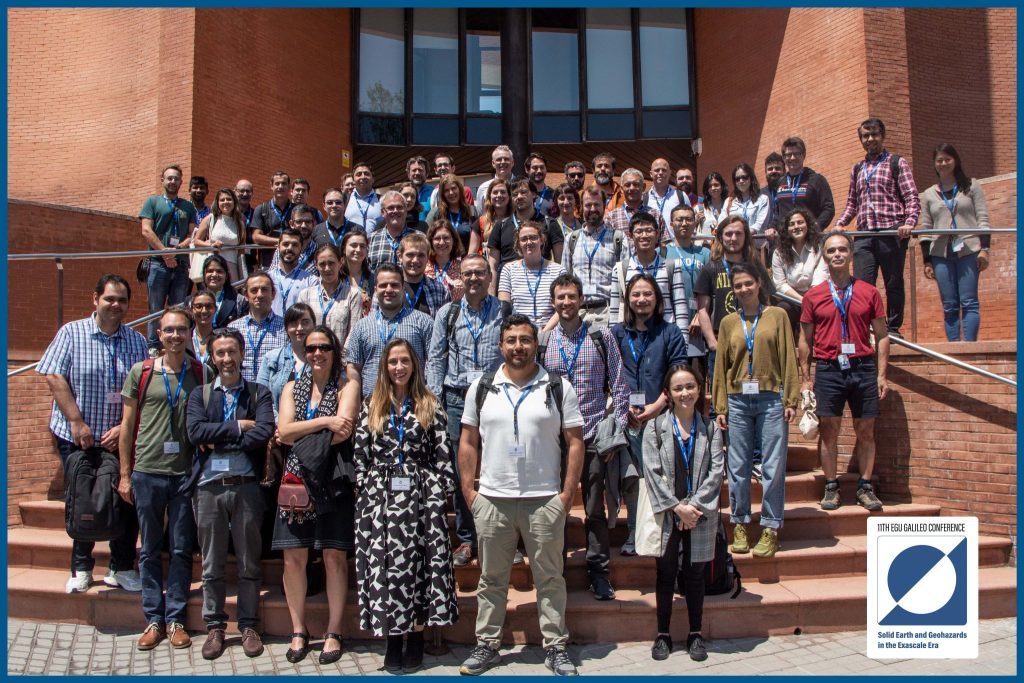ChEESE Endorses Successful Galileo Conference on Solid Earth and Geohazards in the Exascale Era

The Galileo Conference on “Solid Earth and Geohazards in the Exascale Era,” proudly endorsed by ChEESE, wrapped up on May 26th with resounding success. This event, attended by leading experts in computational geosciences, delivered a profound exploration of the challenges and prospects brought forth by the Exascale computing era.
The Galileo Conference went beyond traditional observation, empowering participants to actively shape our ever-changing environment. Exascale computing has revolutionized the field by providing geoscientists with faster, clearer, and more accurate data. However, to fully harness the potential of this technological leap, it is crucial to refine computational methods and codes while equipping geoscientists to tackle upcoming challenges.
Bringing together Earth observatories, researchers, academia, model developers, and end-users, the conference aimed to address scientific breakthrough problems, facilitate knowledge exchange, and chart a roadmap for future advancements.
The conference featured four key sessions, designed to foster idea exchange and collaborative brainstorming:
- Preparation and optimization of HPC codes to Exascale: Scientific codes are undergoing significant transformations to align with emerging hybrid-node architectures and integrate various accelerators. Challenges such as scalability, load balance, fault tolerance, and co-design need to be addressed to fully exploit the potential of Exascale computing.
- Edge-to-end data workflows: Exascale computing involves intricate data workflows spanning from decentralized edge computing to centralized or cloud-based High-Performance Computing (HPC) applications. These workflows encompass various processes and may incorporate artificial intelligence, ultimately delivering refined results to end-users.
State-of-the-art in computational geosciences: This session explored the current state of European computational geosciences, uncovering emerging perspectives, bottlenecks, and challenges in geoscience research, geohazards mitigation, and HPC services. These aspects play a vital role in creating a safer world. - Horizon Europe and EuroHPC Policies: This session focused on devising a roadmap for EuroHPC deployment and exploring research funding avenues within Horizon Europe and other influential EC Directorates-General. By fostering collaboration and seizing Exascale transition opportunities, European geoscientists aim to position themselves at the forefront of global advancements.
In addition to these sessions, the conference featured master classes that provided a platform for early-career scientists, including PhD and MSc students and post-doc researchers, to present their research projects and engage with experienced experts. These interactions fostered collaboration, knowledge transfer, and lively debates, nurturing the next generation of geoscientific leaders.
Throughout the event, attendees enjoyed captivating oral and poster presentations, enlightening talks by distinguished guest speakers, invigorating breakout sessions, and engaging panel discussions, creating an atmosphere of excitement and intellectual exchange.
